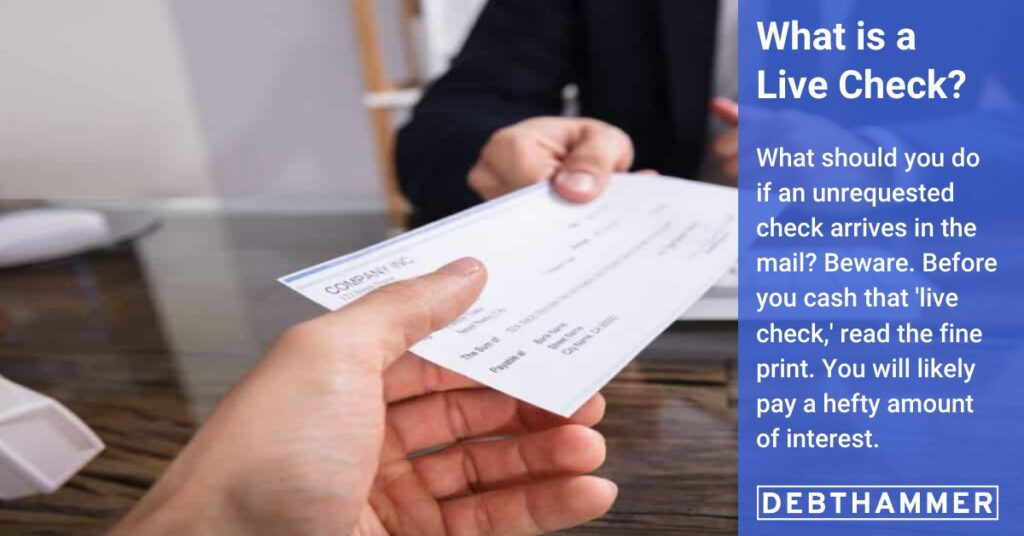We’ve all been in this spot: money is tight, and just as you’re short on cash, what seems like a miracle — an unsolicited paper check — arrives in your mailbox. But there’s a price. That live check is a personal loan. If you cash it, you’ll have to repay the money with interest — usually a lot of interest.
Table of Contents
How do live-check loans work?
A live check is technically any paper check that is ready to be deposited, whether it’s a paycheck, check from a friend or holiday gift.
Most of us know how to recognize those. However, sometimes, a live check will unexpectedly appear in the mailbox, usually around when people spend money on back-to-school items or during the holiday shopping season. If this happens, don’t be naïve. That check is not a sudden windfall. It is a loan offer — almost always an unsolicited one from an online lender. See this example.
If you deposit that check into your bank account, you must be fully aware that it’s a valid loan agreement. You’re committing to the loan terms, which should also be included in the offer — likely in very tiny print. Loan terms can vary widely, including length and interest rates. If the terms aren’t disclosed at all, the check might be a scam and you should destroy it immediately.
Some in Congress aren’t fans of live checks.
A bill was filed in the Senate in 2018 to outlaw the practice but didn’t make it to the floor for a vote. And that’s not the first time the issue was addressed on Capitol Hill. This issue has been on Congress’ radar since at least 1997.
Should you cash a ‘live’ loan check?
The short answer is probably not, but there are some pros and cons.
Pros
There’s a big one — instant access to that money. If you’ve been struggling to make it to payday, it’s tempting to cash that check to buy a well-deserved treat or pick up some much-needed school supplies for the kids. You can pay it back, you figure, when money is less tight.
Another pro is that you don’t have to go through a credit check or deal with any paperwork, and your credit score doesn’t matter. You’ve already been approved, even if the terms aren’t favorable.
Cons
For starters, live checks typically have higher interest rates. Some lenders charge annual percentage rates of more than 80%.
You read that correctly — an APR of more than 80%. A high interest rate on a personal loan for a borrower with bad credit shouldn’t exceed 36% APR.
That doesn’t factor in the lack of flexibility when it comes time to repay. The lender has already set the repayment terms.
Before cashing the check, take some time to explore other options that might be available through a financial institution or credit union.
Can’t make the payments? You can refinance a live-check loan — for a price
One person who cashed a live check issued by Worth Finance called customer service and asked to change the terms. After the term was adjusted — twice — the borrower got a big surprise. In a later conversation with customer service, “it was explained to me that refinancing brings back your account to the original amount,” the borrower wrote in an online review, saying he was given no warning that refinancing would reset the loan terms.
If paying back the loan is a problem, you need to be proactive. Look for refinancing options, try to work out an extended payment plan or contact the lender to discuss options. Don’t default on payments. If you do, the debt could be passed off to debt collectors. Plus, late payments hurt your credit score, staying on your report for as long as seven years.
Seven lenders who mail live checks
These are some of the lenders who have a history of mailing live checks. Be on the lookout for these bank logos.
Worth Finance

On its website, Texas-based Worth Finance describes its products as “Traditional Installment Loans, NOT Payday Loans.” Terms of their loans range from 6-12 months, “so there are no surprises,” and there’s no requirement to set up automatic loan payments. Worth says its goal is “helping you with life’s needs,” but online reviewers disagree. Multiple reviews say Worth’s $1,000 live checks come with onerous terms, including an APR hovering around 90%.
One complaint to the Better Business Bureau indicates that there can indeed be surprises: “I am receiving overdue payment notices for a $1000 loan that I did not take. Someone must have received or stolen this … check that had my mailing address. I called Worth Finance and they said I had signed it, but on the back it had pay to woman’s name, that I do not know, and a Social Security number that is not mine.”
Republic Finance
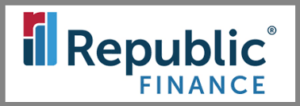
With branch offices located in Alabama, Georgia, Kentucky, Louisiana, Mississippi, Missouri, South Carolina, Tennessee, and Texas, Republic has been around since 1952, and boasts of serving more than 300,000 customers across the United States. But it isn’t easy to find loan terms or APRs on the company website. Instead, you have to call to speak with a live representative for specific details.
What they refer to as “incomparable customer service” led to some big problems for one Georgia couple, who cashed one live check from Republic, which led to another, then another, until the couple found themselves rolling old loans into new loans, creating a mountain of debt. Republic sued the couple for lack of payment, but two attorneys intervened and a settlement was reached.
And then there’s this review, submitted to the Better Business Bureau from a very dissatisfied customer: “I reached out to the company … due to finding out about a judgment from a loan that was sent to collection in 2016 (I do not even remember the loan). My credit report shows that I owe $1828, but when I called to settle the account, the representative said I owe over $5,000.”
Security Finance
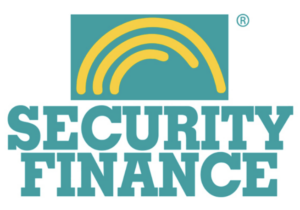
“Need a loan fast? Security Finance is here to help,” the company promises on its website. Founded in South Carolina, the company has offered “fast financial solutions when you need them most.” for more than 65 years. Security offers traditional installment loans, which vary in amount, terms and interest rates depending on the individual rules of each state.
It’s logged 95 BBB complaints in the past three years, including one from a borrower who requested an extension after missing a week’s worth of work during Texas’ unprecedented winter storm in February 2021. He writes: “Never had a problem until recently. I … let them know that my payment would be late due to circumstances that evolved from the major arctic storm here in Texas. I didn’t work for a week…. Then I received a letter, a cease and desist letter. …They have refused to give me the legal department contact information so that I can make a complaint there. All I was trying to do was let them know I would be late on my payment, to waive any late fees, and this is what I got back. Horrible company, horrible people.”
Security Finance ended up settling a 2018 complaint with the Consumer Financial Protection Bureau in which the company was accused of using improper collection methods, including “physically preventing consumers from leaving their homes and visiting and calling consumers’ places of work while knowing that those contacts could endanger the consumers’ employment.”
Mariner Finance
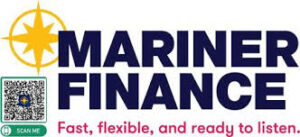
According to Mariner Finance, “a personal loan can meet a variety of needs, including home improvement projects, vacations, weddings, debt consolidation and unplanned expenses.” Mariner offers loan amounts between $1,000 and $25,000 with terms ranging from 12-60 months. APRs range from 18.99% – 35.99%.
More than 300 complaints about Mariner have been submitted to the BBB in the past three years. It averages a one-star BBB rating. One dissatisfied customer reports: “I am a victim of this terrible SHAM business that mails checks to tempt people into bad loans….” After a check was sent to an old address, the complaint says the check was forged and cashed, and the complainant was left on the hook for the money. Mariner demanded a police report and said the incident would take 90 days to investigate; meanwhile the victim had to freeze her records with all three credit reporting bureaus and owes $2700 until the matter is settled. The review’s conclusion: “This is such a hassle and violation! BUSINESSES like this should not be allowed. I will be writing letters to our GOVERNMENT to shut these fraudulent businesses down! Mariner Finance makes it easy for People to steal money and impact good honest people in the community!”
Live checks make up a big part of Mariner’s business. According to The Washington Post, these checks accounted for more than one-fourth of Mariner’s lending during one quarter in 2017.
Heights Finance

“Think of us like your private money team,” Heights Finance tells potential borrowers.
When Southern Management Corp. purchased Heights Finance in 2019, making it one of the largest players in the consumer lending industry with more than 100 branches across the U.S. After a significant corporate expansion gave Southern Management a larger presence across the southeastern and midwestern United States, company leaders decided a few months ago to change the name to Heights.
Recent complaints on the Better Business Bureau’s website aren’t favorable.
Heights offers loans ranging from $500 to $10,000 or more. The loans typically have fixed rates and equal recurring payments. APRs depend on your financial qualifications.
Covington Credit
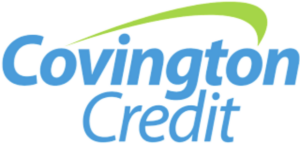
Based in South Carolina, Covington Credit is part of the MyMoneyToGo.com “family,” which also includes Heights Finance. For over 30 years, Covington says they’ve “helped good, honest and hard-working people get the money they need,” and they’re “the best place to get cash in a flash.” According to the company website, qualified borrowers may be eligible to get up to $1,400, but loan terms and rates vary.
Over the last three years, 86 complaints about Covington have been logged with the Better Business Bureau. One reviewer described the company’s customer service as “nil.”
Another BBB complaint alleges: “This business sent a check to my house while I was deployed and someone fraudulently cashed it. I contacted them multiple times to no avail to get this corrected. They were not helpful at all and actually rude. They even showed up at my house and harassed my wife because we refused to pay on something that we did not accept. I keep pursuing and pursuing the issue while I was on the other side of the world and they wouldn’t fix the issue.”
Regional Finance

“Life happens,” Regions Finance says. When it does, the company, which was founded in 1978, says it’s there for borrowers with a loan process that’s “easy to understand, straightforward, and accessible to those who may have had difficulty borrowing in the past.” But the 86 BBB complaints over the past three years make the company sound anything but “straightforward.”
One customer wrote: “In April 2019 there was a loan taken out under my name in Texas when I moved to California in March of 2019. I’ve talked to the company’s fraud department and they told me that they completed an investigation and determined that the account was indeed fraud. But the company still sold my info and debt to a collections agency that is ruining my credit.”
According to a filing last year with the Securities and Exchange Commission, Regional Finance uses its “convenience checks” to draw in customers in markets where it’s expanding.
Regional Finance offers personal Loans ranging from $2,501 to $10,000. The company does not disclose APR information.
Is the live check a better option than payday loans?
Payday loans often charge interest rates in excess of 300% APR, so it’s possible that the check you get in the mail might be a better option than a payday loan. Payday loans generally require permission to debit a bank account, which can be tricky to stop. These automatic debts can, in turn, lead to overdrafts and extra fees. Be sure to compare the fees and interest rates for both options. Payday lending should be considered only as a last resort because the two-week repayment period can leave borrowers stuck in a debt trap, and it can take years to escape the cycle of debt. More than 90% of borrowers end up regretting their original payday loan.
Thinking about cashing that live check? Know your other options
You can find plenty of other options that’ll cost you less than cashing that live check.
- Cash advance apps
- Personal loans
- Credit cards
Protect yourself from identity theft
Scam attempts are rampant, and it’s important that you take steps to protect yourself. Fake debt collectors, personal loan scams, and even credit repair scams are all carefully designed to trick you into handing over your money and personal data.
Pro tip: If someone calls and promises to deposit money directly into your account, do not provide direct deposit information, a Social Security number, copies of check stubs or any other personal information by phone. Ask for the name of the lending company that they represent, as well as a phone number to call them back, then contact the lending company directly to verify that the offer is legitimate. And never believe anyone who asks you to send gift cards. Do a quick background check on the caller to verify that the offer is real. If it sounds too good to be true, it probably is.
Moving? Make sure you visit the U.S. Postal Service’s website and file an electronic change of address request. If you don’t arrange for your mail to be forwarded and a lender mails a live check, someone else could easily cash it and leave you on the hook to repay the loan. “I don’t see how consumers can be held responsible for someone cashing an unsolicited check,” one person wrote on the BBB’s website. That person said the check was cashed using a bank they don’t use.
You can also ask the Postal Service to hold your mail for a period of up to 30 days when you’re out of town.
Freeze your credit reports: A “security freeze” prevents you — or anyone else — from opening an account in your name, but you have to contact each of the three credit reporting companies directly. According to federal law, you won’t be charged for creating or lifting the freeze.
Here are the phone numbers for the credit reporting companies:
- Equifax: 1-800-685-1111
- Experian: 1-888-397-3742
- TransUnion: 1-888-909-8872
Know the laws that protect you from predatory lenders
Federal regulators have established consumer protections to prevent people from falling victim to predatory lenders. The Consumer Financial Protection Bureau has established federal guidelines to help protect you and will take enforcement actions against the lender. Contact the CFPB if you feel your rights have been violated. Also, check your state laws. The Federal Trade Commission (FTC) also tracks scams.
How to opt out of unsolicited loan offers
If you don’t want to get these offers in the mail, it’s easy to get off the banks’ mailing lists. Visit www.optoutprescreen.com or call 1-888-5-OPTOUT (1-888-567-8688).
The bottom line
A random check that shows up in your mailbox should raise immediate questions. Before you cash it, read the fine print. Head online and search to see if it’s a known scam. You want to ensure the lender is legitimate before trying to access the funds.
If it’s legit, assess your options before you cash it because the terms will certainly not be in your favor.

